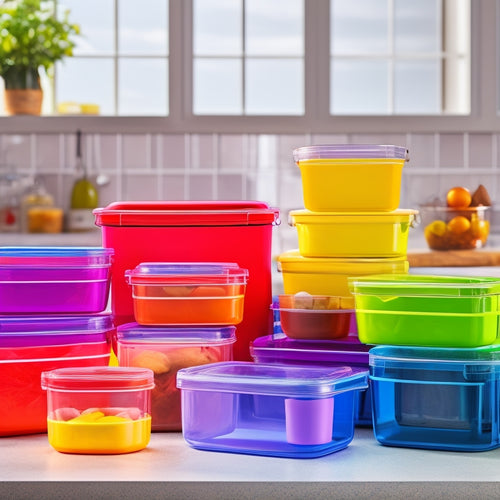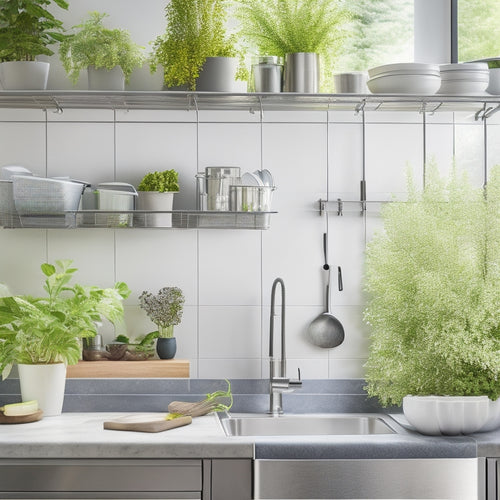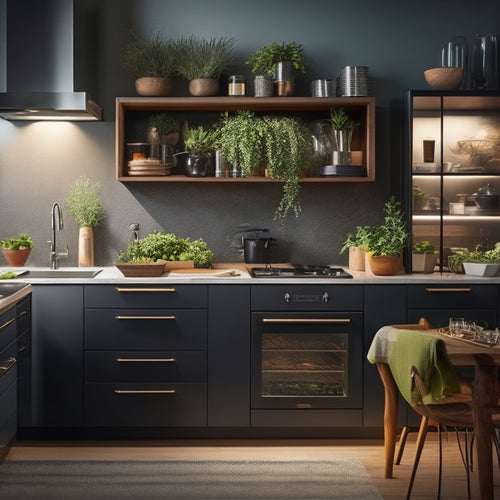
Barrel Woes Stump Brewers: Tips for Success
Share
Insufficient barrel management is a key productivity killer in breweries, leading to stagnation in drink crafting, wasted resources, and ultimately, lost revenue. To overcome these woes, brewers must focus on proper barrel setup, efficient storage, and organized workspace layout to minimize clutter. Understanding the impact of barrel type and material on production efficiency is also essential. By streamlining organization, securing a steady supply, and optimizing workflow, breweries can maximize production and reduce bottlenecks. By implementing these strategies and staying aware of common pitfalls, brewers can unleash the full potential of their operations and take their craft to the next level.
Key Takeaways
• Proper barrel setup and organization are crucial to avoiding production bottlenecks and stagnation in drink crafting.
• Selecting the right barrel type and material can significantly impact production efficiency, with wooden barrels being suitable for certain brews.
• Maintaining a minimum stock of empty barrels ensures a smooth workflow, and utilizing bins for storage maximizes space efficiency.
• Effective barrel management involves understanding resource limits, recognizing production caps, and balancing resource input and output.
• Evaluating ingredient availability and troubleshooting workshop configurations can help pinpoint and resolve bottlenecks in barrel production.
Barrel Management Essentials
Properly setting up and managing barrels is essential to avoiding production bottlenecks, as inefficient barrel storage can quickly lead to stagnation in drink crafting. Effective barrel management begins with a well-organized workspace layout, ensuring easy access to barrels and minimizing clutter.
Careful consideration of barrel types and material choices is also vital, as different materials can impact production efficiency and quality. For instance, wooden barrels may be more suitable for certain brews, while metal barrels may be better suited for others.
Stockpile Strategies for Success
By streamlining barrel organization, brewers can now focus on optimizing their stockpile strategies to secure a steady supply of ingredients and empty containers, thereby preventing production bottlenecks and maximizing workflow efficiency.
Effective stockpile management is essential for maintaining a smooth brewing operation. By implementing storage optimization techniques, brewers can guarantee that essential materials are readily available, reducing the risk of production interruptions.
Additionally, stockpile efficiency can be improved by designating specific stockpiles for workshops, streamlining ingredient sourcing, and minimizing clutter.
Mastering Resource Limits
Effective resource management relies on a deep understanding of the hard limits that govern production, as excessive demand can swiftly deplete available resources and bring brewing operations to a grinding halt. To achieve sustainable brewing, recognizing production caps and adjusting accordingly is crucial. By doing so, brewers can prevent resource depletion and maintain a smooth workflow.
| Resource Management Strategy | Benefits |
|---|---|
| Set production caps | Prevents resource depletion and maintains workflow |
| Balance resource input and output | Ensures efficient production and reduces waste |
| Monitor resource usage | Identifies potential bottlenecks and allows for adjustments |
| Optimize workshop settings | Streamlines production and reduces clutter |
Troubleshooting Common Issues
In the pursuit of brewing excellence, even the most experienced brewers can encounter a variety of challenges that impede their progress, including barrel woes that can halt production.
When troubleshooting common problems, it's vital to inspect workshop configurations and ingredient accessibility. It's important to connect workshops to the appropriate stockpiles to prevent sourcing issues.
Managing production levels and resource allocation is key to prevent surpassing resource limits and enhance production efficiency. Conducting a thorough workshop troubleshooting and evaluating ingredient availability can help pinpoint and resolve bottlenecks.
Optimizing Barrel Production
Six key factors can make all the difference in optimizing barrel production, setting the stage for a steady supply of vessels for brewing and storage.
To begin, working with a skilled carpenter to craft wooden barrels and bins establishes the foundation for efficient production.
Designating a manager for work orders streamlines tasks, while keeping a minimum stock of empty barrels and bins maintains a smooth workflow.
Utilizing bins for storage cuts down on clutter and maximizes space efficiency.
Moreover, utilizing storage organization for trading purposes can further boost efficiency.
By implementing these strategies, brewers can achieve production efficiency, reducing the chances of barrel shortages and storage issues.
With a well-structured system in place, brewers can concentrate on refining their craft, secure in their ability to meet demand.
Frequently Asked Questions
Can I Use Other Containers Besides Barrels for Brewing?
When exploring brewing success, consider alternative containers beyond traditional barrels. Craftsdwarf workshops can create pots from various materials, offering a viable option for brewing, although stills produce alcohol batch sizes based on ingredient stack sizes.
How Do I Prioritize Production Orders for My Stills?
As the conductor of a harmonious production orchestra, prioritize still orders by aligning production planning with capacity optimization, ensuring efficient workflow and avoiding bottlenecks, thereby maintaining a symphony of brewing excellence.
Are There Any Benefits to Using Different Types of Barrels?
When selecting barrels, consider the impact on flavor profiles and the aging process. Different materials, such as oak or steel, can impart unique characteristics to your brews, while also affecting the rate of maturation and overall quality.
Can I Move or Relocate My Stills and Workshops Easily?
"Did you know that 75% of dwarven breweries face logistical hurdles? Relocating workshops and stills can be a challenge, but with careful planning and execution, it's possible to overcome obstacles and optimize production, ensuring a smooth brewing process."
Is There a Way to Automate Barrel Cleaning and Maintenance?
Regarding automating barrel cleaning and maintenance, Dwarf Fortress lacks a native solution, but implementing a designated "cleaning" labor and assigning dwarves to the task can help maintain barrel hygiene and prevent contamination, ensuring safe brewing practices.
Related Posts
-

Stackable Kitchen Containers for Modular Systems
Stackable kitchen containers for modular systems change your cooking space by maximizing vertical storage and enhanci...
-

Wall-Mounted Dish Drainer Racks for Kitchens
Wall-mounted dish drainer racks are a game changer for your kitchen. They maximize vertical space, freeing up preciou...
-

Smart Kitchen Countertop Storage Innovations
Smart kitchen countertop storage innovations are transformative for maximizing your kitchen's potential. You can clea...


